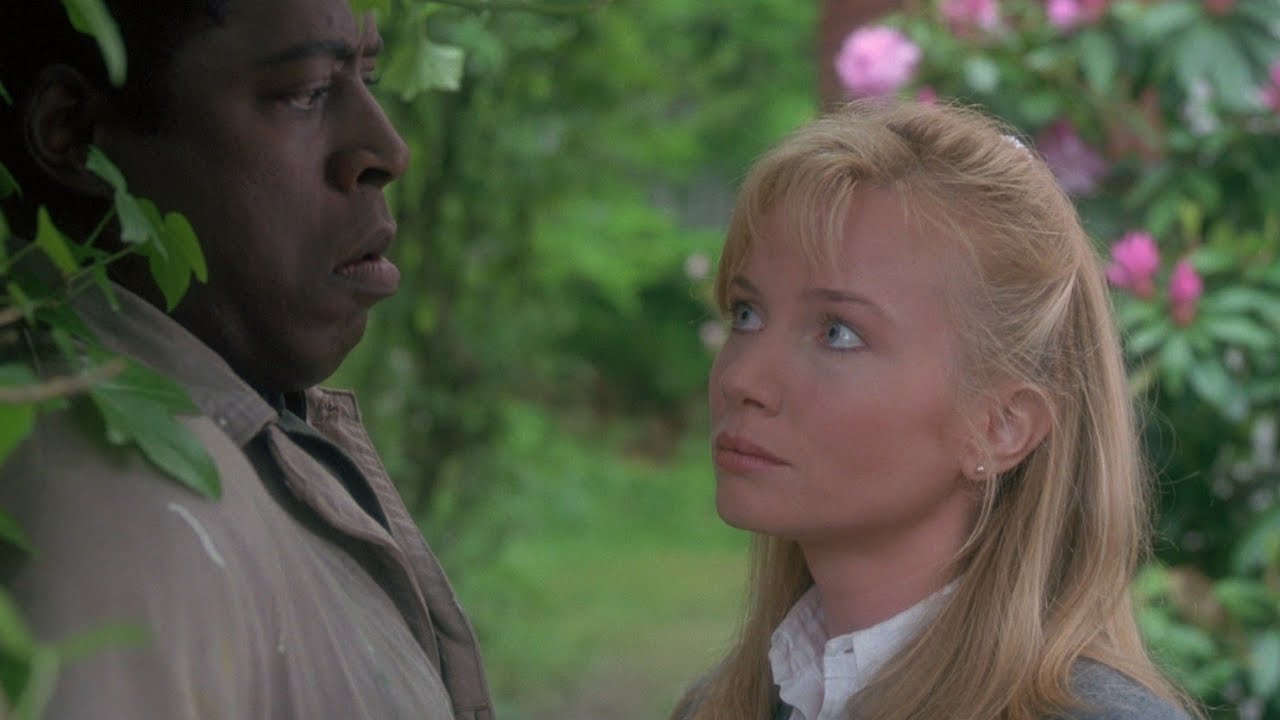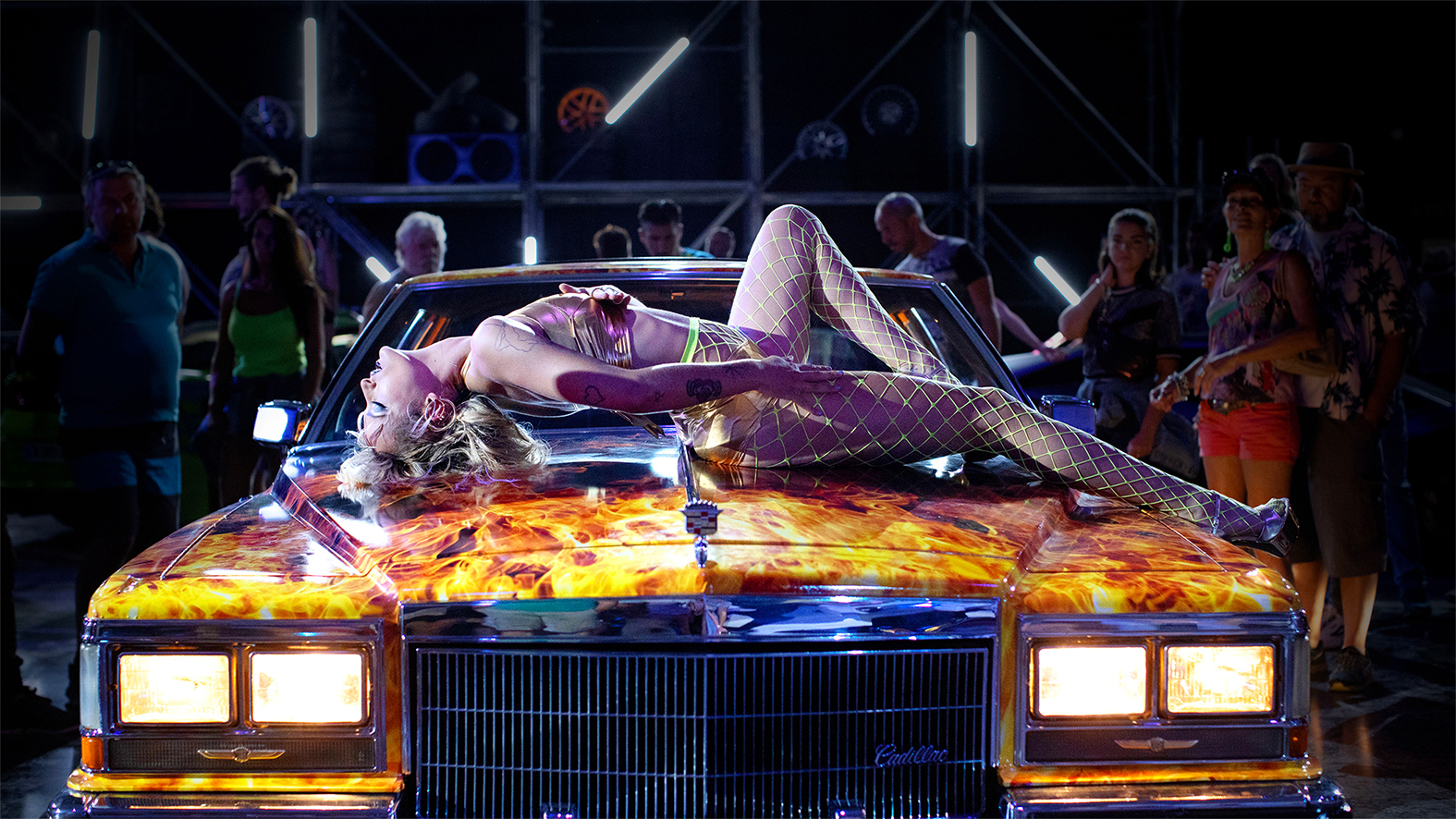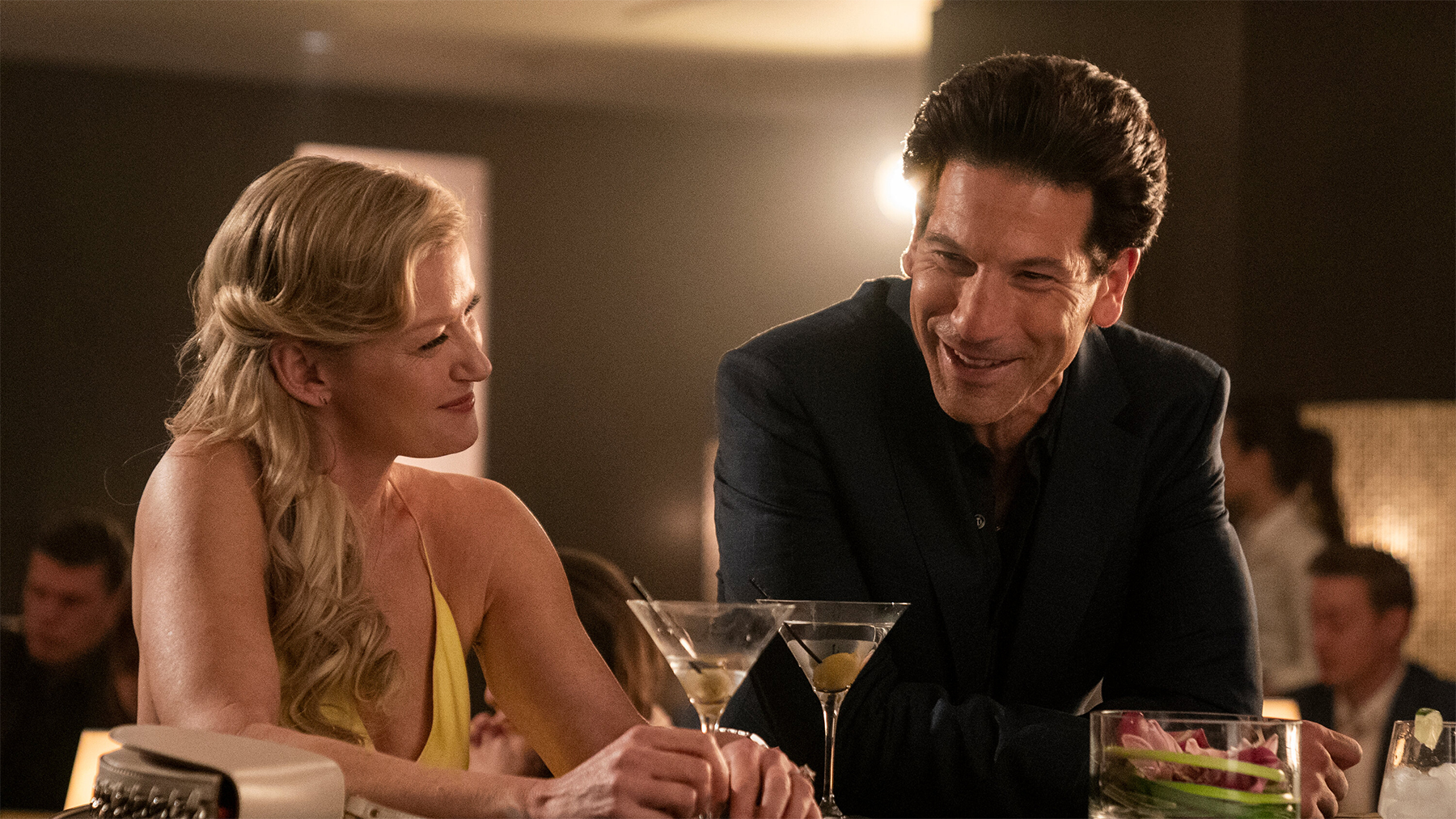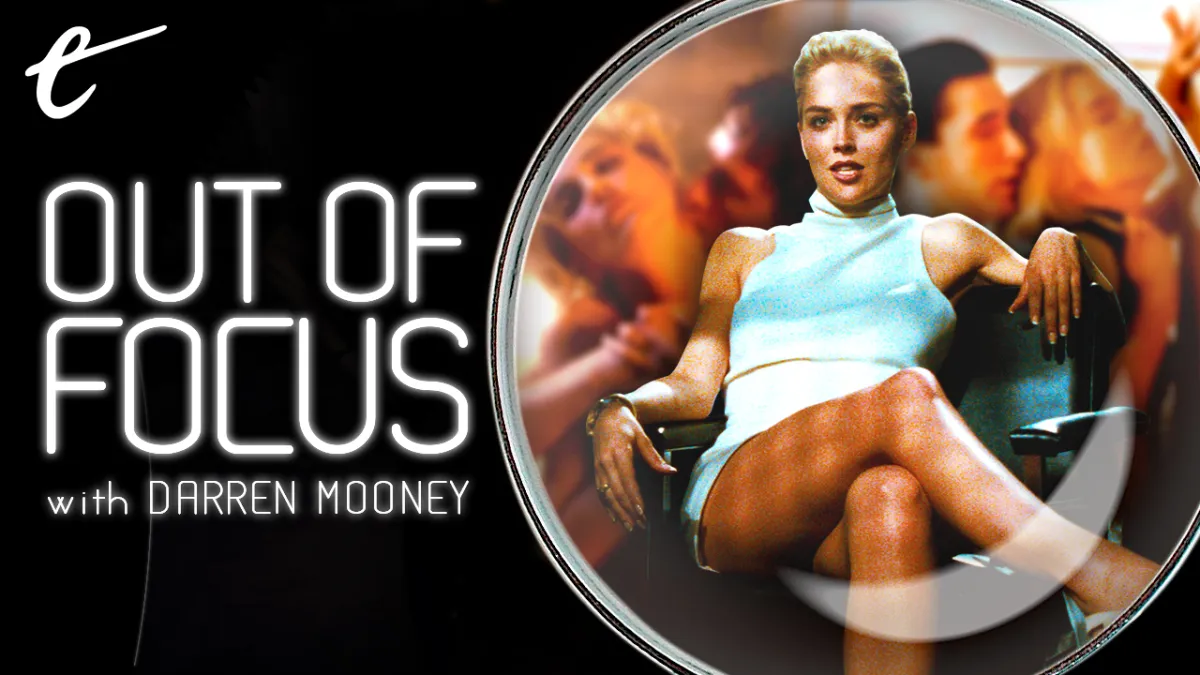The erotic thriller is having a moment.
For those not old enough to remember the 1980s and 1990s, it can be difficult to explain the extent to which the genre dominated the multiplex. Cinemas and video stores were packed with lurid and pulpy tales of sex and violence, R-rated movies headlined by real stars and produced with a high-quality veneer. It’s hard to imagine, but these films represented a very literal example of the “movies for grown-ups” that no longer exist in the mainstream theatrical ecosphere.
Adrian Lyne’s Fatal Attraction, starring Glenn Close and Michael Douglas, was the third highest-grossing movie of 1987. Alan Pakula’s Presumed Innocent, starring Harrison Ford as a prosecutor framed for the murder of his mistress (Greta Scacchi), placed just outside the top 10 in 1990. Joseph Ruben’s Sleeping with the Enemy, starring Julia Roberts, ranked seventh in 1991. The top 10 for 1992 included both Paul Verhoeven’s Basic Instinct and Curtis Hanson’s The Hand That Rocks the Cradle.
At some point, these movies went away. Part of the reason was undoubtedly a number of high-profile critical and commercial flops towards the end of the decade: Verhoeven’s Showgirls in 1995, Andrew Bergman’s Striptease in 1996, Jane Campion’s In the Cut in 2003. However, the industry was also shifting away from investing money and effort in these adult-skewing films. At the dawn of the new millennium, the “four-quadrant blockbuster” emerged as the default mode of populist cinema.
It is no small irony that mainstream blockbusters became increasingly sexless as their actors became superhumanly attractive. As RS Benedict observed in an article on the new reality, “Everyone is beautiful and no one is horny.” There are any number of possible reasons for this trend: the need to sell these productions to conservative foreign markets, the risk of alienating conservative domestic markets, and even a resurgent moral panic about Hollywood movies led by figures like Bob Dole.

It is perhaps also notable that the death of the erotic thriller coincided with two other parallel trends in popular entertainment. The internet became part of mainstream culture at the turn of the millennium, making it easier to access pornography in a direct and private manner. As a result, perhaps the erotic thrillers were no longer exotic enough. The genre may also have been impacted by the collapse of the video store, as these movies tended to perform very well on home media.
In recent years, there has also been a high-profile discourse around sex scenes. In the wake of the #MeToo movement, there has been a reappraisal around how sex scenes are discussed and shot. There has been a historical reckoning with abusive behavior like that experienced by Maria Schneider on the set of Bernardo Bertolucci’s Last Tango in Paris. It has become increasingly common for intimacy coordinators to be involved in the filming of sex scenes and for actors to refuse to do them.
There has also been a recurring online debate about whether sex scenes are ever “necessary.” This is a wrong-headed argument on a number of levels: Movies are more than just plot-delivery mechanisms; it’s a strange double standard that is never applied as rigorously to violence; sex can reveal a lot about a character and their relationships. Even at the most basic level, the assertion is easily disprovable: The sex scene is pretty crucial to the plot of James Cameron’s The Terminator.
To be clear, this sexlessness is a uniquely American phenomenon. The country has a complicated relationship with sexuality, particularly when compared to its European neighbors. The past couple of years have seen a number of high-profile mainstream theatrical erotically charged movies from outside the United States: Park Chan-wook’s The Handmaiden, Céline Sciamma’s Portrait of a Lady on Fire, Julia Ducournau’s Titane, and Paul Verhoeven’s Benedetta, to name a few. The lack of sex on screen is particular to Hollywood.

Provided by Neon
While the erotic thriller was pushed out of cinemas, it found a new home. Like a lot of mid-budget adult-skewing entertainment, modern erotic thrillers are more likely to exist on streaming services. In many cases, they have even been expanded from films into shows. While Netflix initially prided itself as a family-friendly company, it experimented with the release of Earthquake Bird in November 2019, a throwback that combined an erotic thriller with 1980s Hollywood’s obsession with Japan.
However, while Earthquake Bird made no real impression, the genre would experience something of a renaissance during the pandemic. In June 2020, Polish erotic thriller 365 Days arrived on Netflix as a sleeper hit, with Liam Mathews observing it was released with “so little promotion you’d think the streaming service was ashamed to release it.” It went on to become one of the platform’s biggest hits, and it may even have buoyed Gaspar Noé’s erotic romance Love within the service’s algorithm.
Later that year, Shonda Rhimes’ erotically charged period drama Bridgerton became the company’s biggest hit to that point. Netflix was not the only streaming service to see a gap in the market. The following year, Amazon released The Voyeurs, a steamy thriller starring Sydney Sweeney and Justice Smith. Erotic thriller veteran Adrian Lyne returned to the genre with Deep Water, starring Ben Affleck and Ana de Armas, which was released on Hulu in March 2022.
Inevitably, the intellectual property boom and nostalgia cycle circled around to the erotic thriller. In September 2022, Showtime released an eight-episode adaptation of Paul Schrader’s American Gigolo, with Jon Bernthal stepping into the role that had been played by Richard Gere. This week, the network launched an eight-episode update of Fatal Attraction, starring Joshua Jackson and Lizzy Caplan. Alice Birch updated David Cronenberg’s Dead Ringers for Amazon, starring Rachel Weisz.

Something was rumbling within the larger culture. Film critics were undertaking a reappraisal of the erotic thriller as a genre. Karina Longworth’s podcast on Hollywood history, You Must Remember This, launched two seasons covering sex in mainstream Hollywood: Erotic ’80s and Erotic ’90s. In April 2022, Vulture ran a week-long celebration of the genre. In April 2023, the streaming service Criterion released a curated collection of classic erotic thrillers, complete with a cover essay by Beatrice Loayza.
As such, it seemed like the culture was priming itself for a long-overdue discussion about the place of sex and sexuality in mainstream American entertainment: part reckoning, part celebration. However, attempts to revive the genre have stumbled. There are a number of reasons for this. Part of the difficulty is the challenge of attempting to update these complicated and uncomfortable films for a different time. The sexual and gender politics of the 2020s are far from those of the 1980s, making direct transposition difficult.
At the risk of employing a rhetorical cliché, many of the erotic thrillers of the 1980s were “problematic.” They were misogynistic and sexist, often rooted in male insecurities about the advances of second-wave feminism. These films typically played into an anxiety that women could be just as sexually and professionally aggressive as men, and that male protagonists might find their positions of authority challenged in both the bedroom and the boardroom.
Often, these movies ended with the death of the female antagonist and the reassertion of the traditional family unit. They were thorny and uncomfortable works that often tapped into unsettling masculine anxieties. This doesn’t mean that the movies were bad. Indeed, they were often insightful. Consciously or not, many of these movies had their finger on the national pulse, playing out cultural psychodramas as stylish genre exercises. However, this makes them a difficult fit for modern culture.

Modern pop culture is uncomfortable with ambiguity and nuance. In her review of the updated Fatal Attraction, Judy Berman opined that modern audiences “demand entertainment that echoes their values rather than challenging them,” observing that both the Fatal Attraction and American Gigolo remakes employ a flashback structure in which the male lead is released from prison and hopes to conclusively prove their innocence. There’s an unwillingness to let viewers sit in discomfort.
However, there is a more fundamental issue at play. The relegation of the erotic thriller to streaming services minimizes its impact and reach. After all, streaming services have fragmented modern pop culture, making it difficult for audiences to have shared experiences and to meaningfully engage in discussion around what they are consuming. Watching a film or television show on streaming can feel like a very lonely and very individual experience.
While classic erotic thrillers performed well on home media, a lot of their power derived from the way in which they forced conversations about sex and sexuality into the mainstream consciousness. Adrian Lyne’s Fatal Attraction wasn’t just a box office hit; it was a cultural lightning bolt. “People haven’t stopped talking about it,” remarked Washington divorce lawyer Glenn Lewis a month after it came out. “I think it’s right up there with AIDS in keeping people monogamous.”
Fatal Attraction was “the most talked about film of the year.” It sparked debates in workplaces and at dinner parties, but also in the pages of newspapers like The Washington Post and The Los Angeles Times. The same was true of many of these films, providing a framework by which audiences and journalists could explore thorny issues. It could be difficult to have these sorts of conversations, but the erotic thriller invited the viewer to think about challenging ideas in an accessible way.
This becomes much harder with a streaming film or show. The act of watching becomes a more private and insular experience, and these objects are often treated as curiosities to be consumed and discarded. It’s fascinating to see the erotic thriller making a return to mainstream pop culture, and it’s great to see retroactive assessments of the genre placing it in its proper context. However, it isn’t just that audiences used to watch erotic thrillers. They used to watch them together.






Published: May 3, 2023 11:00 am